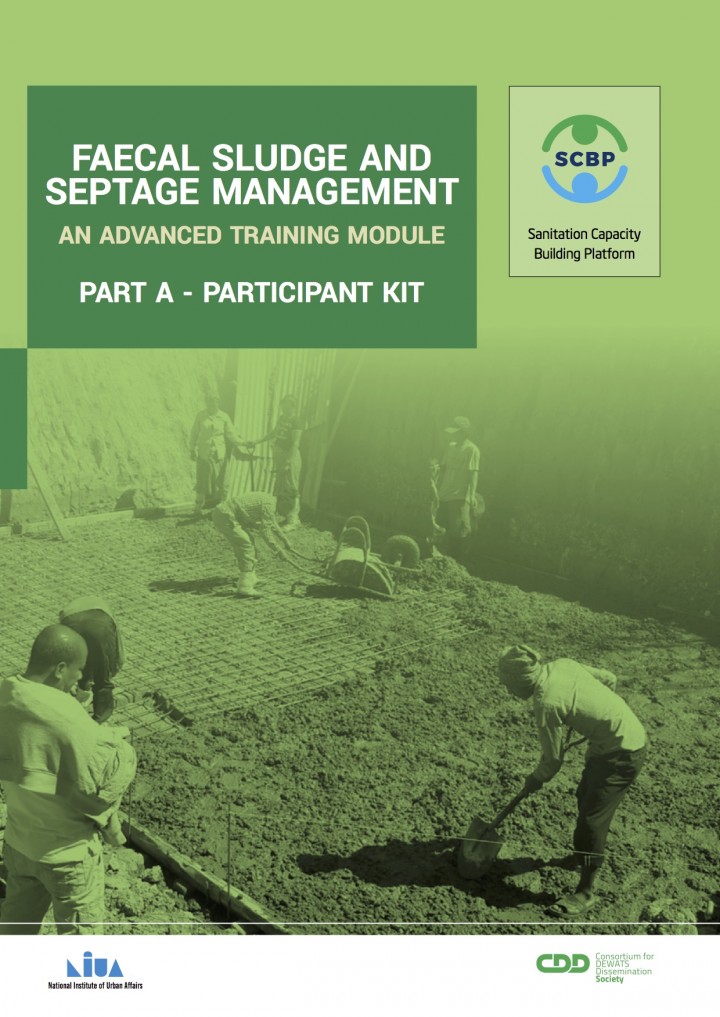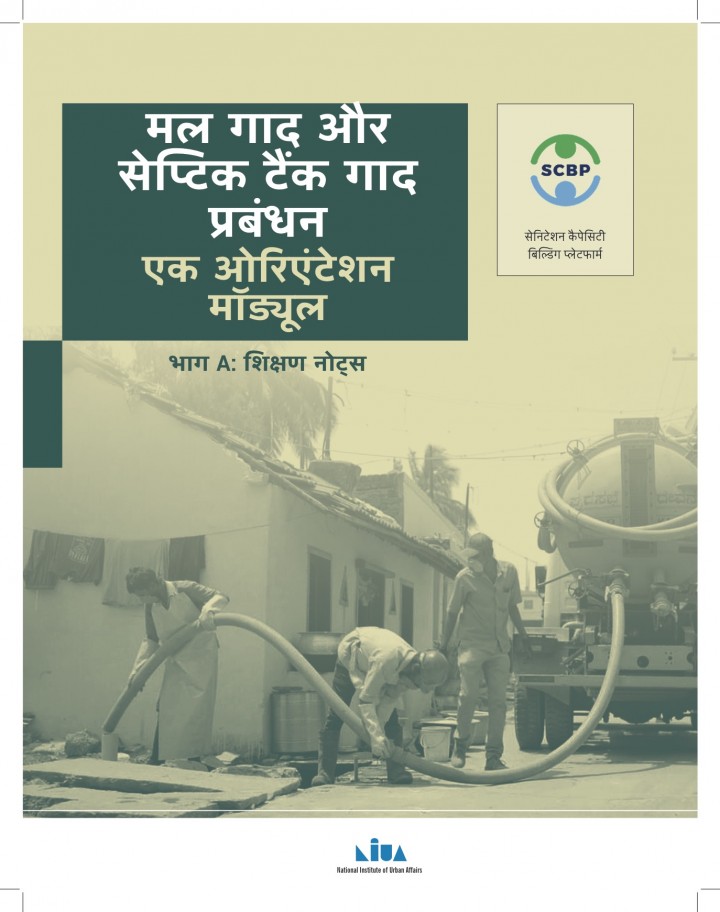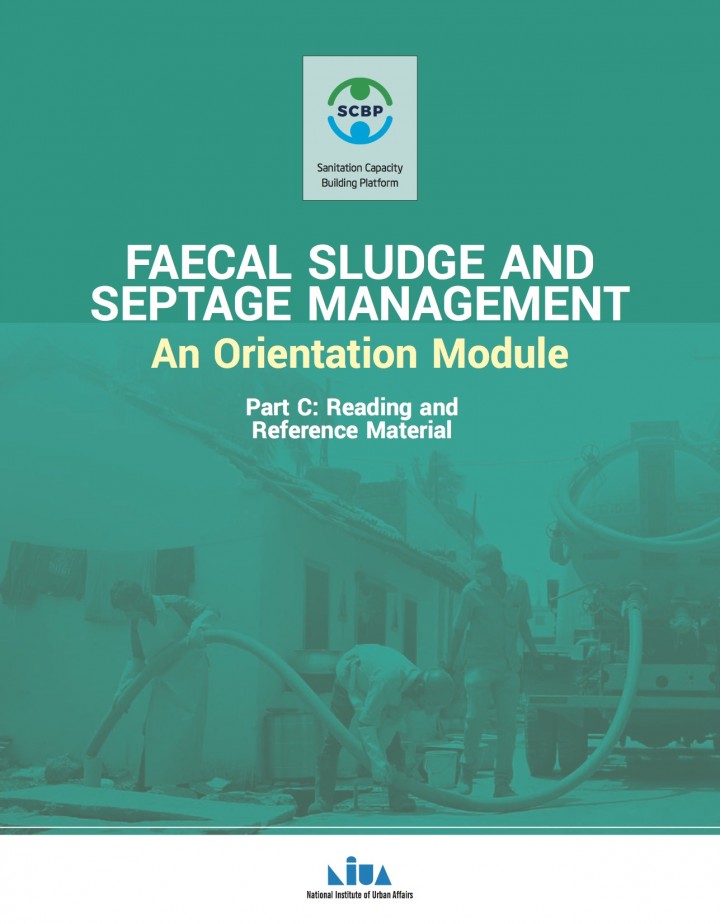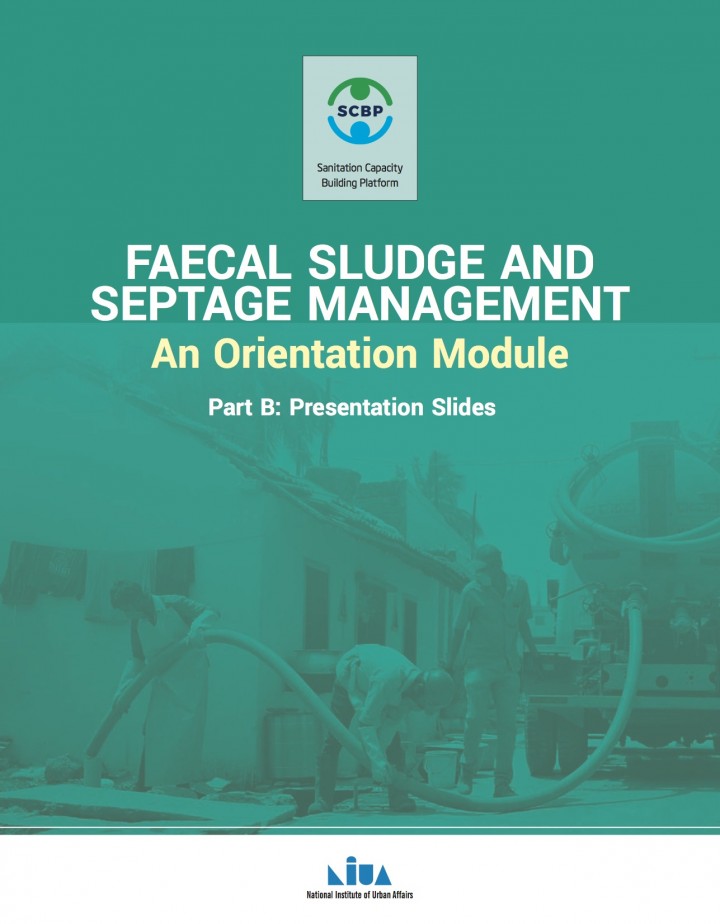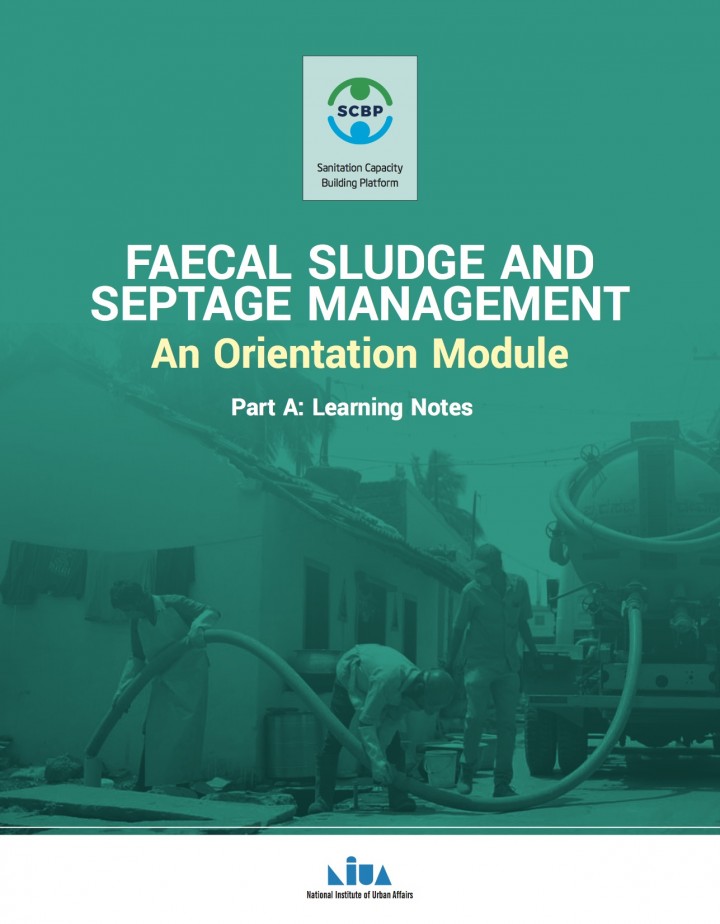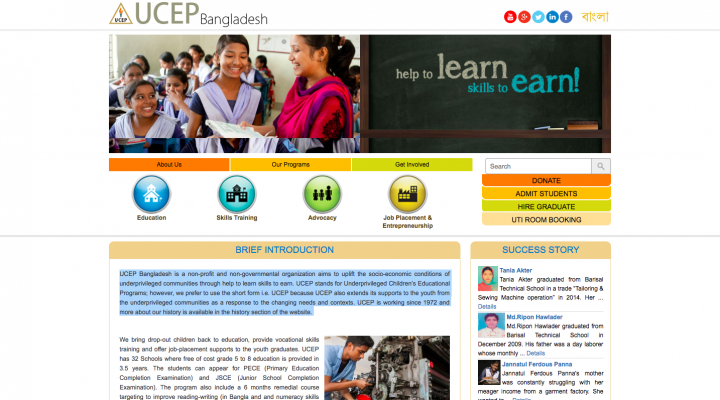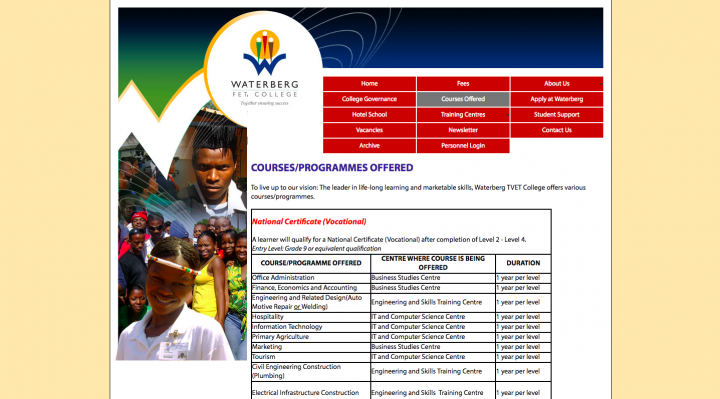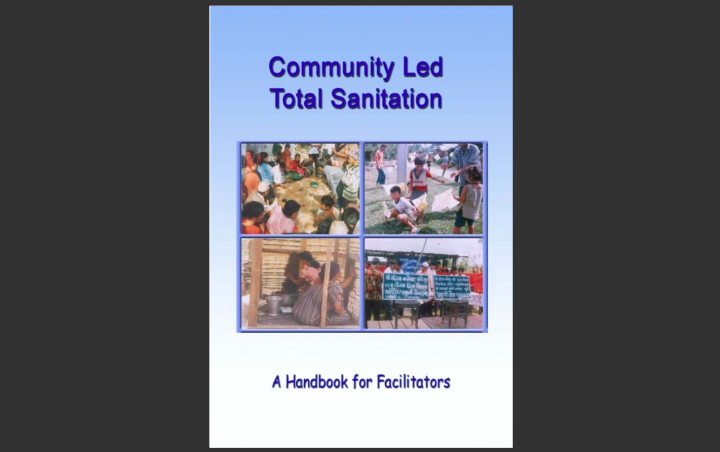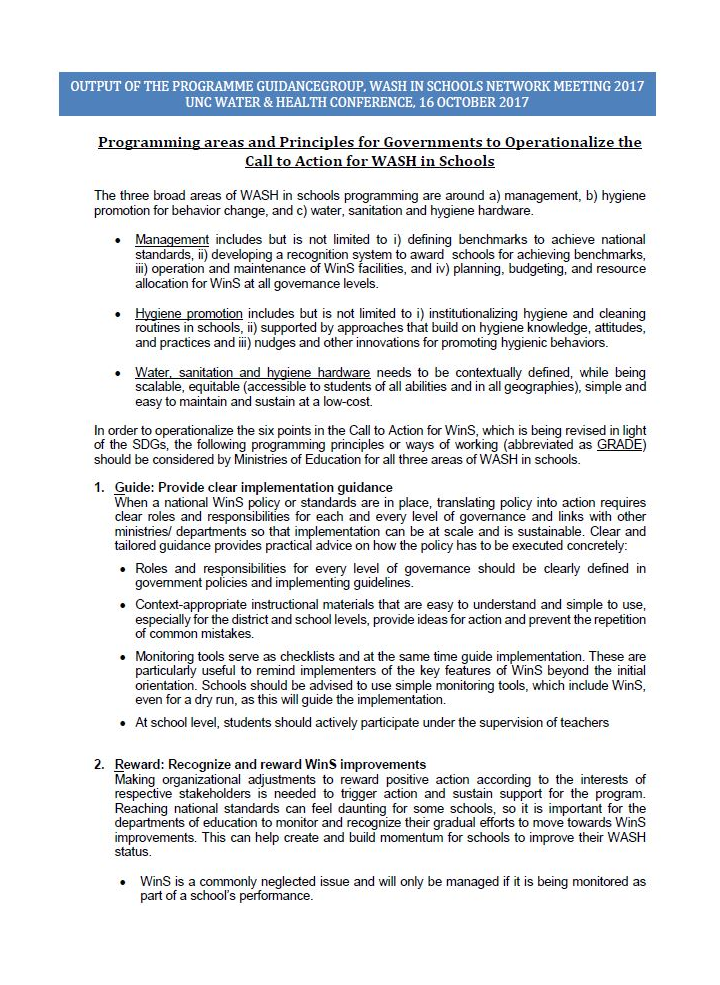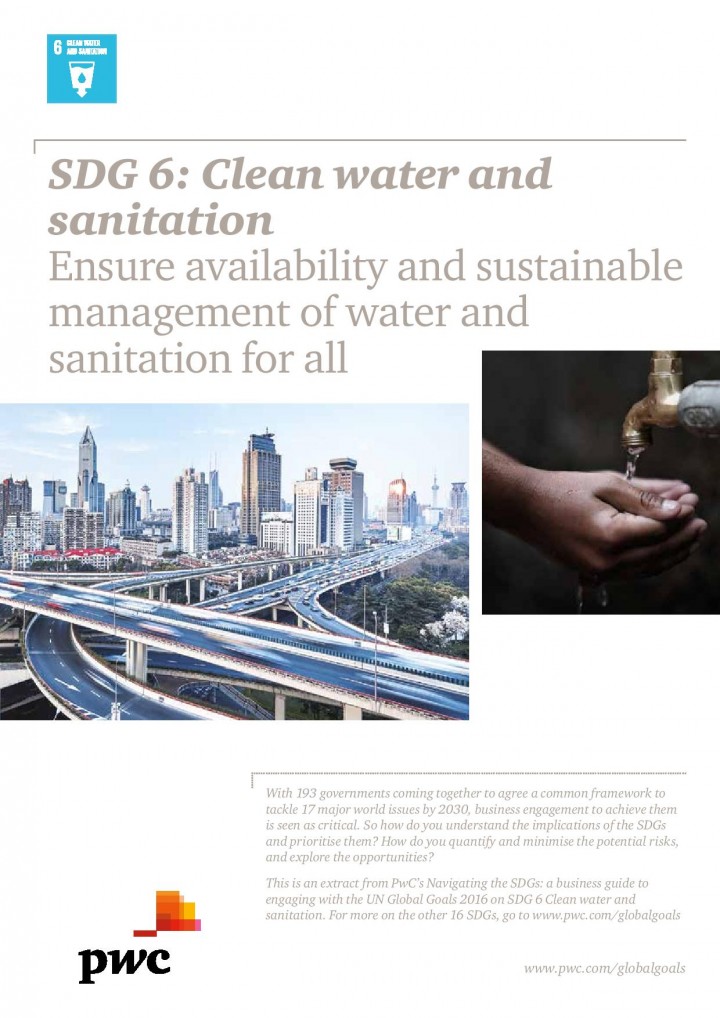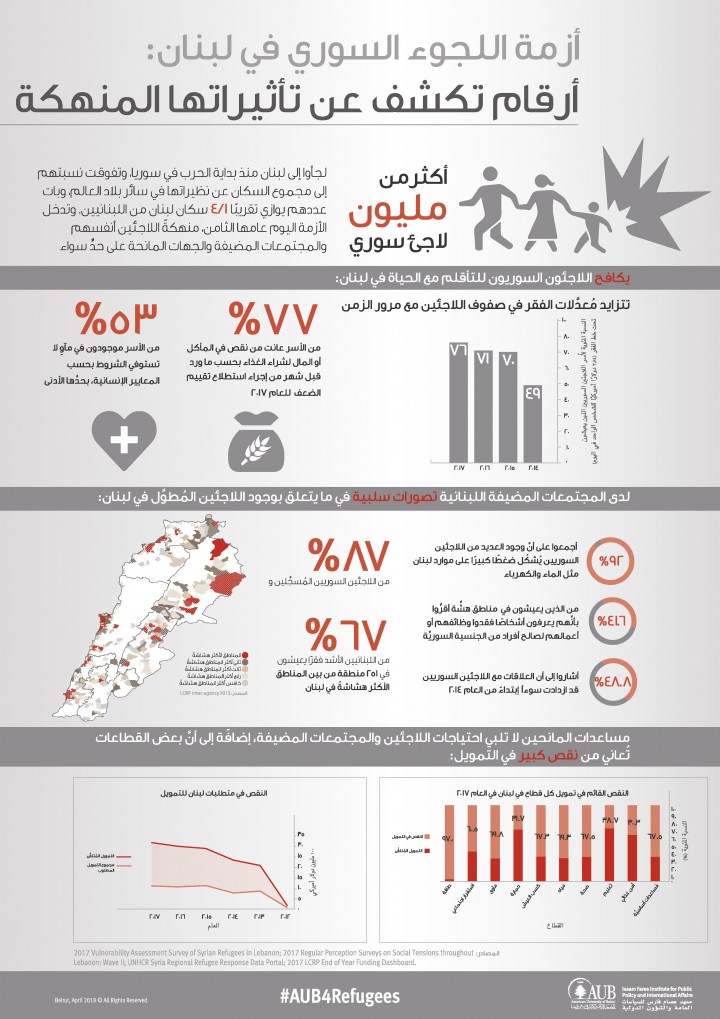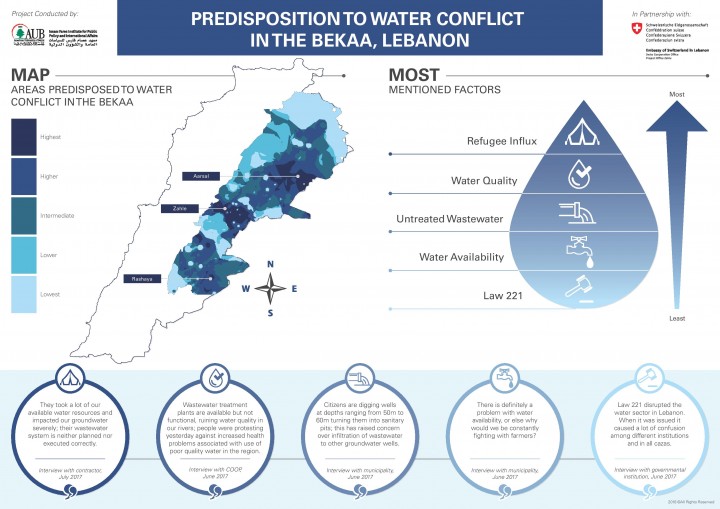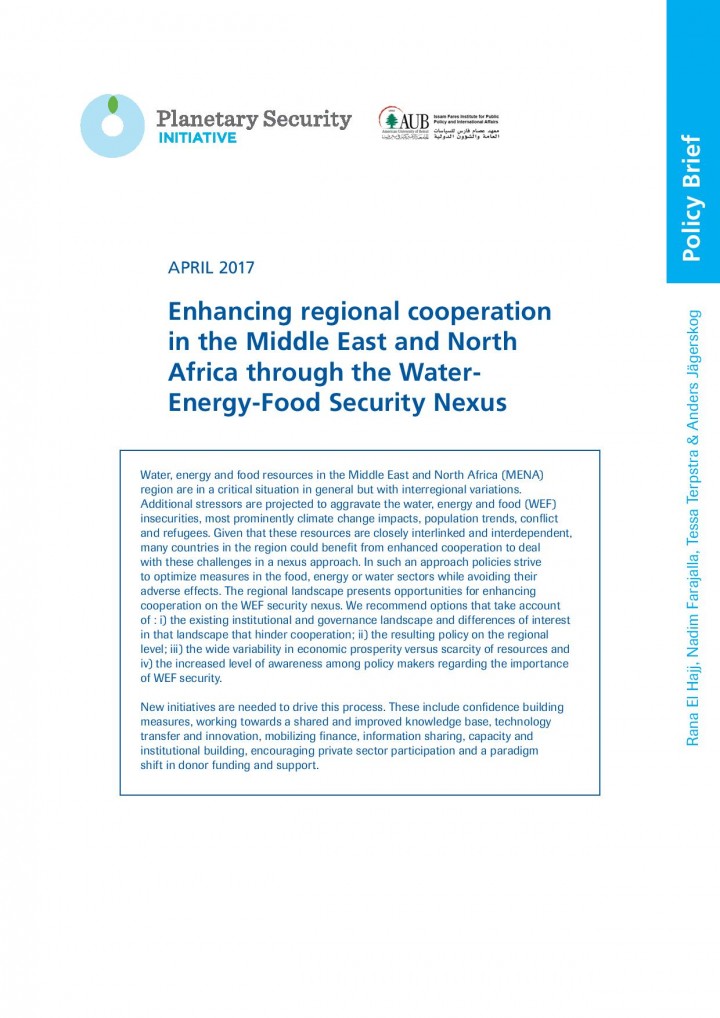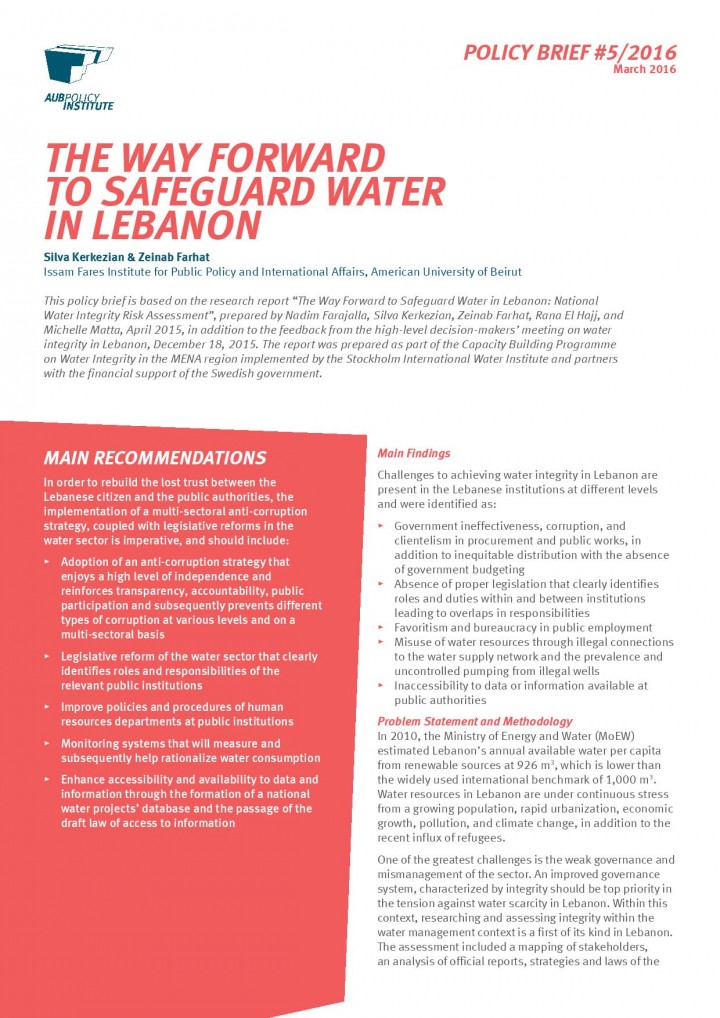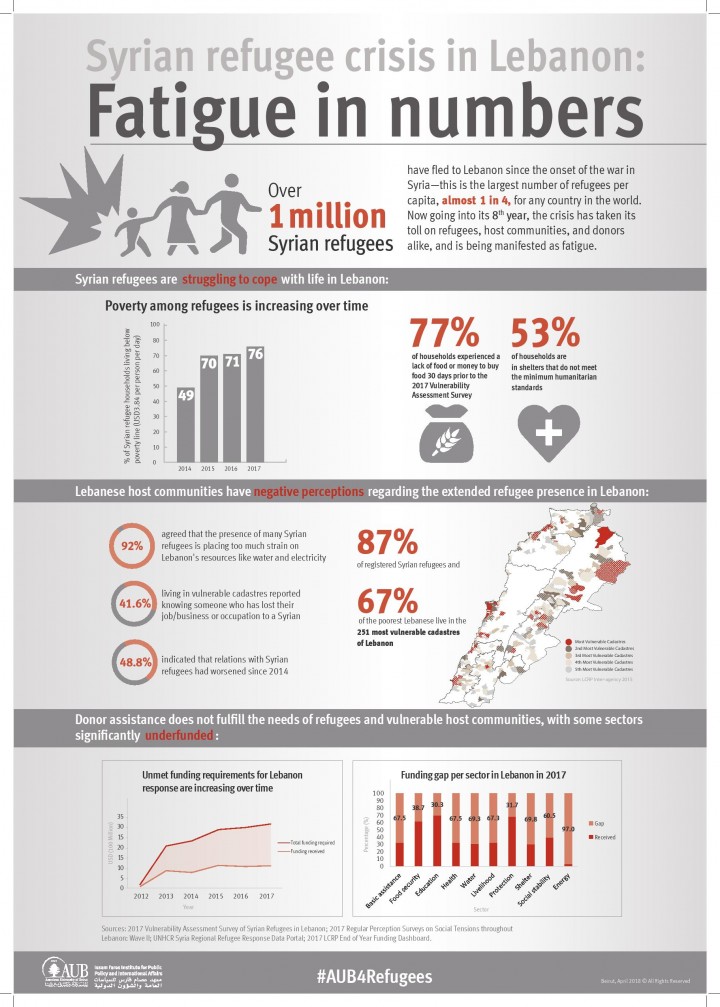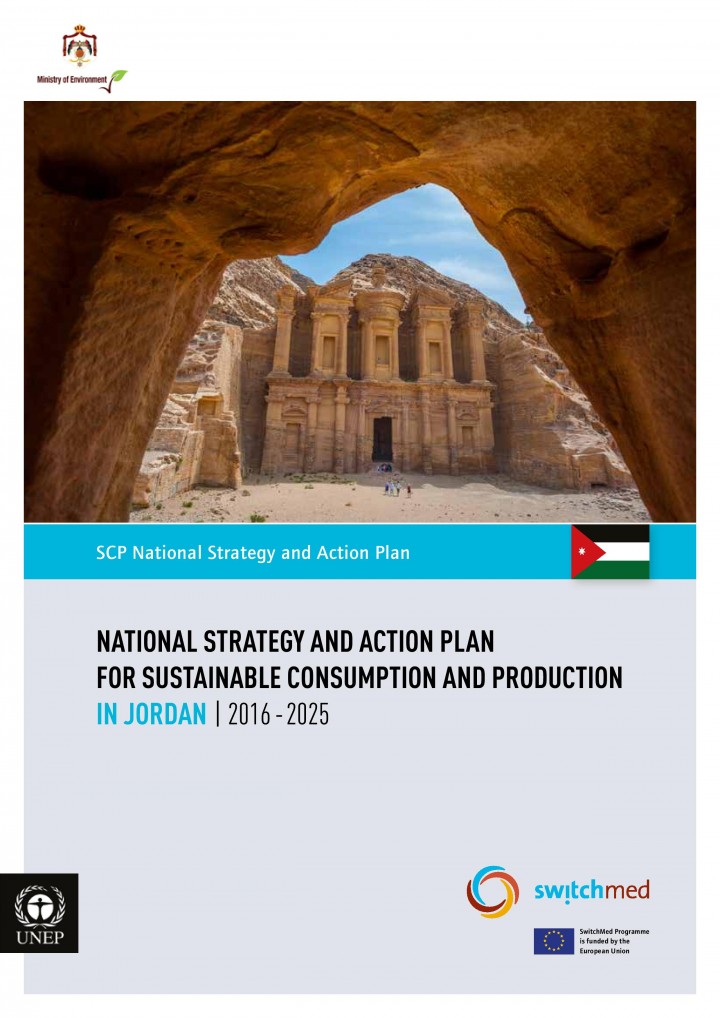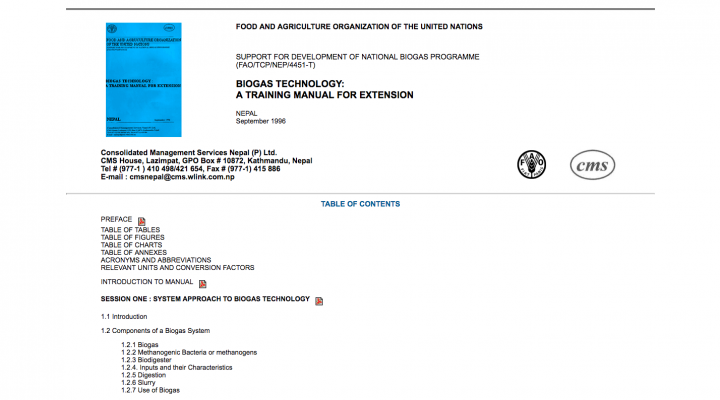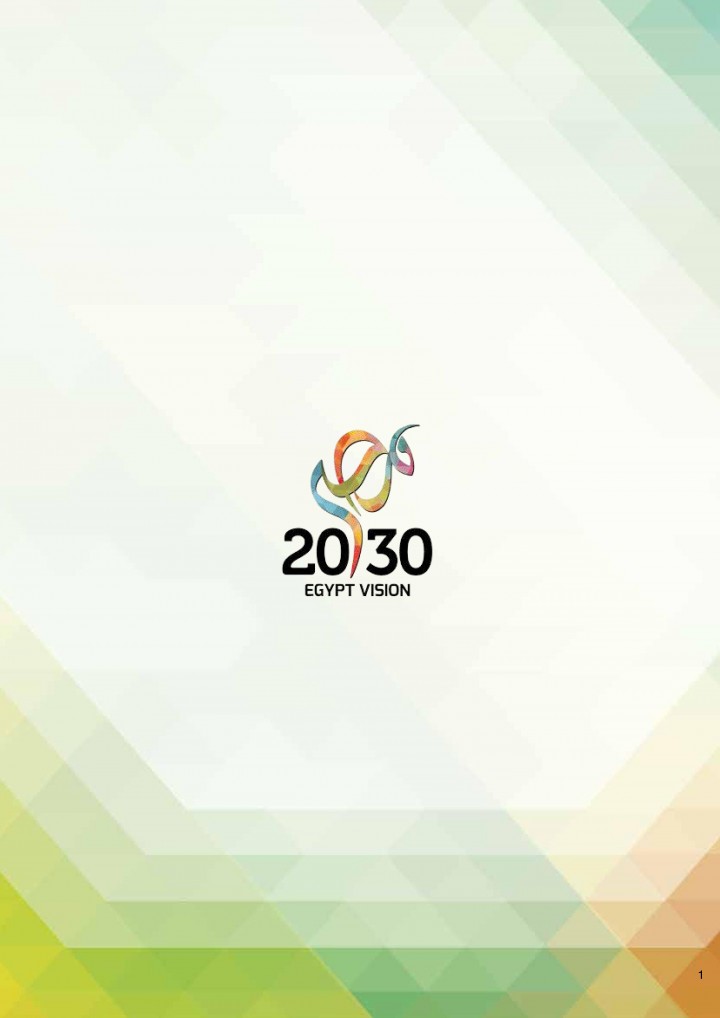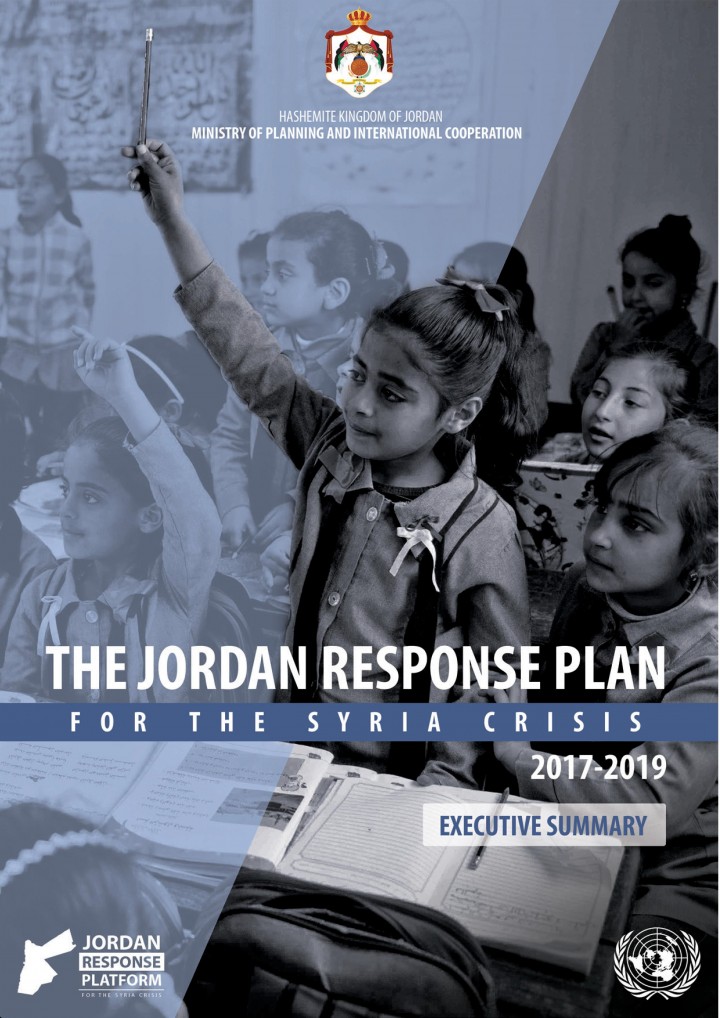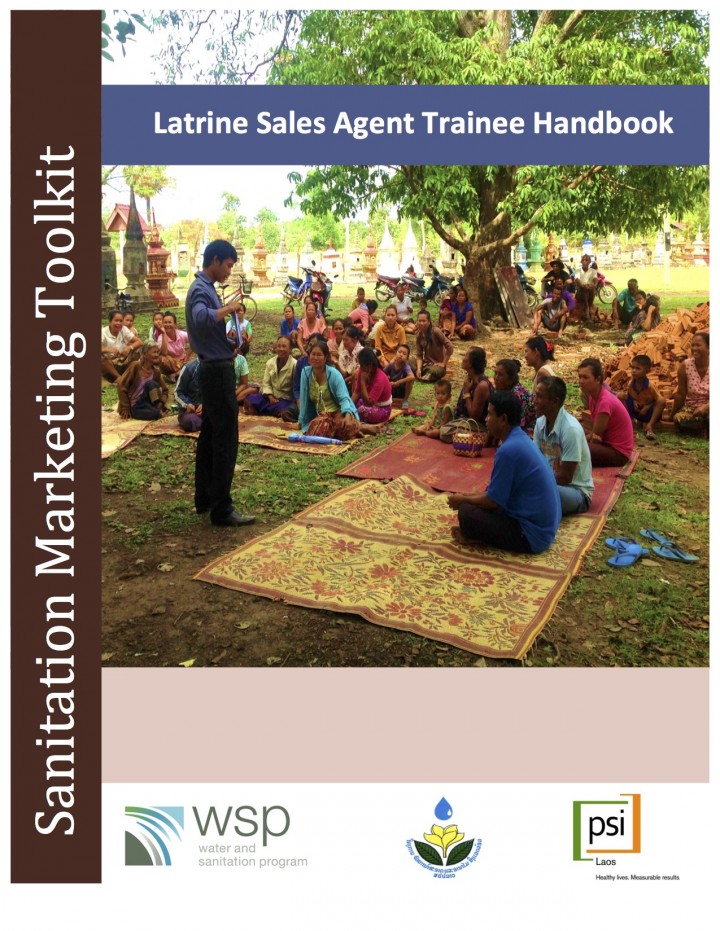NIUA (2018) Faecal Sludge and Septage Management An Advanced Training Module (Part A: Participant Kit)
About the Training Modules Training Modules on decentralised sanitation, septage and wastewater have been developed, tested and delivered by SCBP during 2016-17, during training of government officials from UP, Rajasthan, MP, Telengana, Bihar, Karnataka, West Bengal, Jharkhand and Chattisgarh. These Modules have also been used in Training of Trainers(ToTs) of Amrut Nodal Agencies, Academia, Students, NGOs and Private Sector. Modules are in 3 Parts : […]
NIUA (2017) Faecal Sludge and Septage Management An Orientation Module (Part A: Learning Notes) (In Hindi)
About the Training Modules Training Modules on decentralised sanitation, septage and wastewater have been developed, tested and delivered by SCBP during 2016-17, during training of government officials from UP, Rajasthan, MP, Telengana, Bihar, Karnataka, West Bengal, Jharkhand and Chattisgarh. These Modules have also been used in Training of Trainers(ToTs) of Amrut Nodal Agencies, Academia, Students, NGOs and Private Sector. Modules are in 3 Parts : […]
NIUA (2017) Faecal Sludge and Septage Management An Orientation Module (Part C: Reading and Reference Material)
About the Training Modules Training Modules on decentralsid sanitation, septage and waste water have been developed, tested and delivered by SCBP during 2016-17, during training of government officials from UP, Rajasthan, MP, Telengana, Bihar, Karnataka, West Bengal, Jharkhand and Chattisgarh. These Modules have also been used in Training of Trainers(ToTs) of Amrut Nodal Agencies, Academia, Students, NGOs and Private Sector. Modules are in 3 Parts […]
NIUA (2017) Faecal Sludge and Septage Management An Orientation Module (Part B: Presentation Slides)
About the Training Modules Training Modules on decentralsid sanitation, septage and waste water have been developed, tested and delivered by SCBP during 2016-17, during training of government officials from UP, Rajasthan, MP, Telengana, Bihar, Karnataka, West Bengal, Jharkhand and Chattisgarh. These Modules have also been used in Training of Trainers(ToTs) of Amrut Nodal Agencies, Academia, Students, NGOs and Private Sector. Modules are in 3 Parts […]
NIUA (2017) Faecal Sludge and Septage Management An Orientation Module (Part A: Learning Notes)
About the Training Modules Training Modules on decentralsid sanitation, septage and waste water have been developed, tested and delivered by SCBP during 2016-17, during training of government officials from UP, Rajasthan, MP, Telengana, Bihar, Karnataka, West Bengal, Jharkhand and Chattisgarh. These Modules have also been used in Training of Trainers(ToTs) of Amrut Nodal Agencies, Academia, Students, NGOs and Private Sector. Modules are in 3 Parts […]
UCEP Bangladesh (2018) UCEP TVET (Technical and Vocational Education and Training): Plumbing
UCEP Bangladesh is a non-profit and non-governmental organization aims to uplift the socio-economic conditions of underprivileged communities through help to learn skills to earn. UCEP stands for Underprivileged Children’s Educational Programs; however, we prefer to use the short form i.e. UCEP because UCEP also extends its supports to the youth from the underprivileged communities as a response to the changing needs and contexts. UCEP is […]
Waterberg TVET College (2018) Engineering (Water & Waste)
Waterberg TVET College is a public further education and training institution which has been established according to the FET Act no 98 of 1998. The College is registered with the Limpopo Department of Education in terms of the Provincial Regulations for Registration of Institution, and its EMIS number is 991102502. The college is deemed accredited by UMALUSI, the quality assurance body responsible for general and […]
RCNN (2007) Community Led Total Sanitation A Handbook for Facilitators
This handbook has been prepared to guide the community health motivators, health and sanitation workers as well as community leaders to adopt and facilitate the CLTS approach in communities where sanitation programmes are being implemented. It is believed that this will help the concerned individuals to get a clear concept of CLTS and guide them to adopt its methods at the community level.
Monse, B., Venkatesh, M. (2017) Programming Areas and Principles for Governments to Operationalize the Call to Action for WinS
PwC (2016) SDG 6: Clean water and sanitation Report
With 193 governments coming together to agree a common framework to tackle 17 major world issues by 2030, business engagement to achieve them is seen as critical. So how do you understand the implications of the SDGs and prioritise them? How do you quantify and minimise the potential risks, and explore the opportunities? This is an extract from PwC’s Navigating the SDGs: a business guide to […]
IFI (2018) أزمة اللجوء السوري في لبنان: ارقام تكشف عن تاثيراتها المنهكة Syrian refugee crisis in Lebanon: Fatigue in numbers (in Arabic)
مخطط المعلومات الرسومي
IFI (2018) Predisposition of Water Conflict in the Bekaa, Lebanon infograph
This publication contains infograph about predisposition of water conflict in the Bekaa, Lebanon
El Hajj, R., Farajalla, N., Terpstra, T., and Jägerskog, A. (2017) Enhancing regional cooperation in the Middle East and North Africa through the Water-Energy-Food Security Nexus Policy Brief
Water, energy and food resources in the Middle East and North Africa (MENA) region are in a critical situation in general but with interregional variations. Additional stressors are projected to aggravate the water, energy and food (WEF) insecurities, most prominently climate change impacts, population trends, conflict and refugees. Given that these resources are closely interlinked and interdependent, many countries in the region could benefit from […]
Kerkezian, S., Farhat, Z. (2016) The Way Forward to Safeguard Water in Lebanon Policy Brief
This policy brief is based on the research report “The Way Forward to Safeguard Water in Lebanon: National Water Integrity Risk Assessment”, prepared by Nadim Farajalla, Silva Kerkezian, Zeinab Farhat, Rana El Hajj, and Michelle Matta, April 2015, in addition to the feedback from the high-level decision-makers’ meeting on water integrity in Lebanon, December 18, 2015. The report was prepared as part of the Capacity […]
IFI (2018) Syrian refugee crisis in Lebanon: Fatigue in numbers
Infograph describing the Syrian refugee crisis and its impacts in Lebanon
Ministry of Environment Jordan, UNEP (2016) A National Strategy and Action Plan for Sustainable Consumption and Production in Jordan 2016-2025
The National Strategy and Action Plan for Mainstreaming Sustainable Consumption and Production intoAgriculture/Food Production, Transport, and Waste Management Sectors in the Hashemite Kingdom of Jordan (2016-2025) aims at supporting the implementation of agreed on SCP strategic, operational objectives and actions at the national level. This document has been prepared in line with the regional SCP Action Plan for the Mediterranean, in cooperation with the SWITCH-Med […]
FAO (1996) Biogas Technology: A training manual for extension Support for Development of National Biogas Programme
This manual is an outcome of (FAO/TCP/NEP/4451 -T) project being implemented with the Ministry of Forest and Soil Conservation as the liaison institution. CMS developed this manual through six stages. To start with, a team of four CMS professionals prepared a draft of this manual which was improved upon based on the comments and suggestions from the national experts and practitioners. At this stage, professional inputs from FAO was […]
The Arab Republic of Egypt (2016) Egypt Vision 2030
Inspired by the ancient Egyptian Civilization, linking the present to future, the Sustainable Development Strategy (SDS): Egypt Vision 2030 represents a foothold on the way towards inclusive development. Thus cultivating a prosperity path through, economic and social justice, and reviving the role of Egypt in regional leadership. SDS represents a roadmap for maximizing competitive advantage to achieve the dreams and aspirations of Egyptians in a dignified […]
Ministry of Planning and International Cooperation in Jordan (2017) The Jordan Response Plan for the Syria Crisis 2017-2019
With the Syria crisis entering its seventh year in 2017, Jordan is hosting some 1.266 million Syrians, of which 655,833 are registered as refugees. Providing for their needs, without jeopardizing Jordanian people, institutions and systems’ development gains and opportunities, has impacted heavily on Jordan’s finances, increasing government expenditures on subsidies, public services and security, while further compounding the negative economic consequences of regional instability. Since 2013, […]
WSP, PSI (2018) Sanitation Marketing in Lao PDR - Book 8 Latrine Sales Agent Trainee Handbook
This manual provides the responsibilities of all sales agents and the tools, strategies and information you need to do so. This manual may be revised occasionally to reflect new policies or procedures. Sales agents will receive revised sections or amendments to the manuals as they are made.
